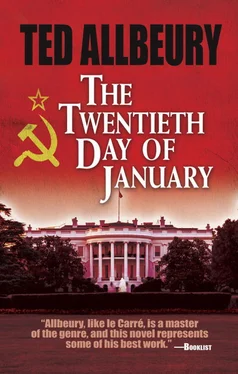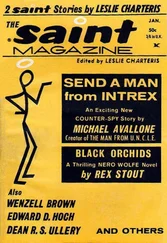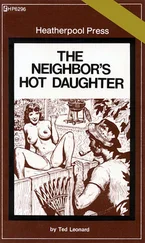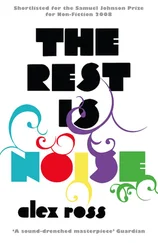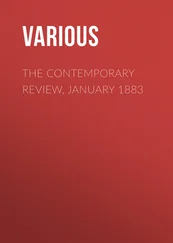At Copenhagen Kleppe paid cash to continue to Stockholm, and when the plane landed at Brumma he took the airport bus into the city. At a bookshop in Kungsgatan he picked up a Dutch passport in the name of Van Gelder and took a taxi back to the airport.
The Russian at the Aeroflot desk saw the KU in front of the passport number and looked up for a moment as he reached for the boarding card. As he handed it over he smiled faintly.
“Have a good trip, Mijnheer. They’ll be calling you in a few minutes. Gate seven.”
“Dank U heel.” And Kleppe smiled back. He liked KGB men with a touch of humour.
At Sheremetyevo it had stopped snowing, but even the few yards across the tarmac to the big black Zil were breathtakingly cold.
There was nobody to meet him except the driver, but that was normal. Why give any watchers a clue, however insignificant?
It was eight o’clock local time, and there were lights in all the apartment blocks that lined the road to Moscow. There were gaunt skeletal frames silhouetted in the moonlight where new blocks were under construction.
He looked out again as the car turned into Kalinin Prospekt. He sighed. No matter how you looked at it, Moscow was a dreary city. Pittsburgh on a Sunday night. And all over the Soviet Union men sold their souls and women their chastity for the privilege of a Resident’s Permit in this grey city. The place in the Soviet Union where it all was at. He smiled to himself, and wondered idly what he would do if they ever recalled him.
The car stopped, and the driver stood holding open his door. He picked up his bag and stepped out into the snow. He looked up at the front of the house. They never put him up twice in the same place but it was always luxurious. The driver gave him two keys and he walked up the stone steps and unlocked the big door. An old babcha stood smiling in the open doorway on his right.
It was like a stage set for Turgenyev. Heavy curtains, rose-wood panelling, large pieces of furniture and the smell of steam heating. He loved it. It was nice to be back. It was Russia. The prodigal son must have felt like this. His Russian was sometimes clumsy now, but the old lady smiled and nodded as he talked to her.
There was a small pile of envelopes on the brown chenille tablecloth. They were propped up against a shining brass vase that held half a dozen large chrysanthemums. He picked up the envelopes and opened them one by one.
There was a KGB identity card in his name, complete with an up-to-date photograph. They were probably showing him that some of the boys in New York still kept an eye on him as well as taking his orders. Two permanent passes for ten days at the Bolshoi, with a printed list of performances. A card with a list of official telephone numbers and another with girls’ names and their numbers. The big envelope had two thick wads of ten rouble notes. There was a short note of welcome to him from the Secretary to the Presidium, handwritten. As he picked up the last envelope the telephone rang. He picked it up.
“Yes.”
“Comrade, they ask if you could attend for a very short meeting this evening. Ten o’clock at Dzerzhinsky Square. A car will come.”
“Is that Ivgenia?”
“Yes.”
“Tell them for you alone I come.”
He heard her laugh softly before she hung up.
It had started six years before. He had been in Moscow on a routine visit and he had given a talk at the training school in Leningrad for senior KGB agents. The subject was the two American political parties, and he covered their structure, finances, method of operation and the election processes.
He had been called back a month later, and for two days a team of four had questioned him about the way in which a State Governor was elected in the United States. Everything was noted and analysed down to the most routine details. They had spent four hours on the powers of a ward-heeler. They had raised points that he couldn’t answer, that most Americans wouldn’t be able to answer, either. They had gone over the Constitution word by word, and State election laws. Back in New York it had taken him three weeks of hard work finding out the details that they wanted. Copies of official forms, photocopies of old forms that had been completed. There were requests for novels and films which dealt with American politics. There was so much material that he had had to take it to Washington for onward transmission in the diplomatic bag.
There had been nothing on the subject for the next four months. Then he had been recalled again. The meeting had been in the main operations room. There had only been four others beside himself. One of them was Andropov, the Director of the KGB, and the other three were all members of the Presidium. When they had told him what they proposed it was impossible to hide his incredulity. He had been aware of Gromyko’s grim face and the piercing grey eyes watching his face as he argued against their plan. They had listened without comment or argument to what he had said and then they had broken off for lunch.
When they had reassembled they were joined by a KGB colonel. He had recognized him right away. It was Rudolf Abel, his predecessor in the US. The man the Americans traded back to the Russians for the release of U-2 pilot Gary Powers. Abel looked old and ill, his white hair sparse and lank. His hands trembled as he sorted through a pile of papers, but his eyes were alert as if all his vitality were concentrated there.
Andropov had started the meeting.
“Comrade Kleppe, maybe we should have put this to you before this meeting so that you’d had time to absorb our proposals. In your training talk you planted the seeds of this operation. Our friend the comrade colonel will explain.”
He nodded to Abel who looked at all the faces round the table, and finally at Kleppe’s.
“Comrade Kleppe, when you were last here you went over the details of the United States election process and an analysis was made of the conclusions, to see if they would allow my proposals to be considered.” He paused and pressed his chest as if he were in pain. Then he continued.
“Let us deal with basic simplicities. It is clear that in the United States a man is elected because of a combination of money and influence. You stated this many times in different ways. Agreed?”
“Agreed.”
“All I am saying is that we have the money, and the influence to get a man elected. That is a fact, yes?”
“Maybe. I’m not sure.”
“Which do you doubt, comrade? The money or the influence?”
“It depends what level of election we are talking about.”
“State Governor.”
“That would cost a lot of dollars.”
Abel’s eyebrows went up, and his thin lips were scornful.
“The cost of a small patrol boat?”
“I guess so.”
“So you doubt the influence, yes?”
“Yes.”
“How many politicians do you know, comrade?”
“Several hundred.”
“Important businessmen?”
“The same.”
“Trades Union leaders?”
“A dozen.”
“Fine. And you are only one of our people in the United States. We have three or four more of your calibre, hundreds who are efficient and tens of thousands who can carry out simple instructions. Is that influence enough?”
“Sure. But there’s the question of finding a man. The timing. There are specific qualifications.”
“Time—we have decades, comrade. Qualifications are age, residence, citizenship and no criminal record, yes?”
“And willingness to co-operate.”
Abel smiled coldly, and looked at Andropov who nodded.
“I think we have such a man.” Abel leaned forward towards Kleppe. “One of the people reporting to me from the United States has the possibility of such a man. He wishes to be in politics for business reasons. He is young, a typical American, little money, no influence, likeable but almost no chance of political success. He lacks the two ingredients you identified—money and influence. We could supply those.”
Читать дальше
